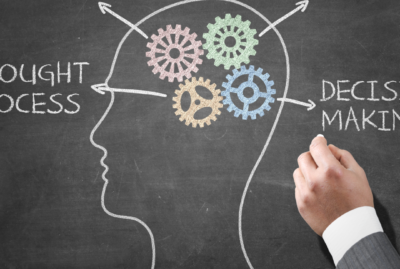Navigating Life with Precision: Understanding Executive Function

Introduction Executive function is the unsung hero of our cognitive processes, quietly orchestrating the symphony of tasks that make up our daily lives. It’s like the conductor of an orchestra, ensuring that each instrument plays its part in harmony. In this blog, we’ll delve into the fascinating world of executive function, exploring its role, challenges, and strategies for enhancing it. What is Executive Function? Executive function refers to a set of mental skills that help individuals manage, plan, organize, and execute tasks. Think of it as the brain’s command center, responsible for decision-making, problem-solving, and regulating emotions. These skills are crucial for success in various aspects of life, from academic and professional pursuits to personal relationships. The Three Pillars of Executive Function Challenges Associated with Executive Dysfunction Many conditions and situations can impact executive function, leading to challenges in daily life. Attention deficit hyperactivity disorder (ADHD), traumatic brain injuries, and certain neurodevelopmental disorders are often linked to executive dysfunction. Stress, lack of sleep, and aging can also affect these cognitive processes. Strategies for Enhancing Executive Function Conclusion Executive function is the backbone of effective cognitive processing, influencing our ability to navigate life’s challenges. By understanding its components and implementing strategies to support it, individuals can unlock their full potential and lead more organized, focused, and fulfilling lives. So, let’s give a well-deserved spotlight to the unsung hero that is executive function.
Learn About Bullet Journaling

Take part in our group about Bullet Journaling.
5 Games Kids Can Play While Traveling

Games can be a fun and effective way to help develop executive function skills in children. Many games require planning, organization, and the ability to adjust strategies as needed, which are all important executive function skills. Games also help children develop working memory, attention, and self-regulation, as they need to remember the rules, pay attention to their opponents, and manage their emotions. Additionally, playing games in a social setting can help children develop social skills, such as turn-taking, collaboration, and communication, which are also important for success in school and life. Overall, playing games can provide a fun and engaging way for children to practice and improve their executive function skills, while also promoting social and emotional development. If you would like more ideas, visit our Parent Resources.
How We Help Children With Executive Function

As a parent, you want your child to be successful in all aspects of their life, and that includes their academic performance. However, some children may struggle with certain skills that are necessary for success, such as executive function skills. This is where Midwest Educational Therapy & Associates (META) comes in. META is a team of highly trained professionals who specialize in helping children with executive function skills. Executive function skills are a set of cognitive processes that are responsible for goal-directed behavior. These skills include planning, organizing, initiating, and monitoring actions, as well as working memory, cognitive flexibility, and self-regulation. Children with executive function difficulties may have trouble with completing tasks, managing time, staying focused, and regulating their emotions. META’s team of experts uses a research-based approach to assess and identify a child’s executive function difficulties. They then develop an individualized plan to help the child improve their skills. The plan includes a variety of evidence-based strategies and techniques that are tailored to the child’s specific needs. One of the strategies used by META is cognitive training. This involves specific exercises and activities that help the child develop their cognitive skills. These exercises are designed to target areas of weakness and build up strengths. The exercises can be done in person or remotely, depending on the child’s needs. Another strategy used by META is coaching. This involves working with the child to help them develop specific skills, such as time management and organization. The coach provides guidance and support, helping the child to set goals and track progress. The coach also helps the child to develop strategies for staying focused and managing distractions. Need Help With Your Child? META also works closely with parents and teachers to ensure that the child’s needs are being met. They provide regular progress reports and collaborate with other professionals involved in the child’s care, such as therapists and psychologists. In addition to helping children with executive function skills, META also provides support for children with learning difficulties, such as dyslexia and ADHD. They offer a range of services, including assessments, therapy, and academic support. If you’re concerned about your child’s executive function skills or other learning difficulties, don’t hesitate to reach out to META. They can help your child develop the skills they need to succeed academically and in life. With their evidence-based approach and individualized plans, you can be confident that your child is receiving the best possible support.


